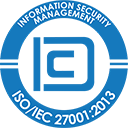TMF Russia
Providing critical compliance and administrative services in Russia and around the world



TMF Russia has a strong international management team of around 200 specialists in accounting, law, tax, entity management, payroll and HR, serving clients locally and internationally.
Besides Russia, we implement projects and support international clients on a permanent basis in Georgia, Mongolia and the countries of the Commonwealth of Independent States (Armenia, Azerbaijan, Belarus, Kazakhstan, Kyrgyzstan, Moldova, Tajikistan, Uzbekistan).
We provide a full range of corporate services to help you to reduce risks, stay compliant, better control your costs and simplify your operations. Our team of experienced professionals can help you to incorporate or invest quickly, safety and efficiently.
Our team of experienced professionals can help you to incorporate or invest quickly, safety and efficiently.
TMF Russia update: TMF Group stopped services to clients with a Russian UBO in March 2022. Our global compliance team continues to monitor and act on sanctions against Russian individuals and organisations.
Our offices in Russia remain open and are maintaining services to North American, European and Asian clients operating in the country.
Office locations

Moscow
TMF RUS LLC
16A Leningradskoe shosse
Metropolis Business Center, Floor 3, Bld. 3 Moscow
Russia
125171
RMA SERVICES LLC
16A Leningradskoe shosse
Metropolis Business Center, Floor 3, Bld. 3 Moscow
Russia
125171
Tel: T: 8 495 789 00 65

Voronezh
RMA SERVICES LLC
11 Kirova street, «Kirova 11»
Business Center, Floor 3, Voronezh
Russia
394018
Tel: T: 8 473 251 60 14

Kirov
Local services
In addition to our global portfolio of services, our Russian offices provide additional support for specific local requirements. This includes:
Specific projects:
- Internal review of accounting, payroll and HR documentation
- Health and safety services: ensure safe labour conditions and labour protection at each working place
- Personal income tax declaration for residents and non-residents
- Support with physical inventories
- We can also assist you with the preparation of information packages on controlled transactions to tax regulatory bodies and reporting on related parties according to the transfer pricing regulations
Credentials
What sets our services apart?
Many of our team of chartered accountants hold the ACCA or other professional qualification. They have experience in serving clients from a variety of industries including pharmaceuticals, fashion, automotive, technology, e-commerce, telecommunications and food
A global leader and the only provider capable of bundling corporate secretarial, payroll, and accounting services
One firm, with a global master service agreement, consistent service and communication
Our global services
Latest news and insights
Expand your business efficiently across borders
Get in touch to find out how we can help your organisation grow in a complex world.
Contact us Contact us







